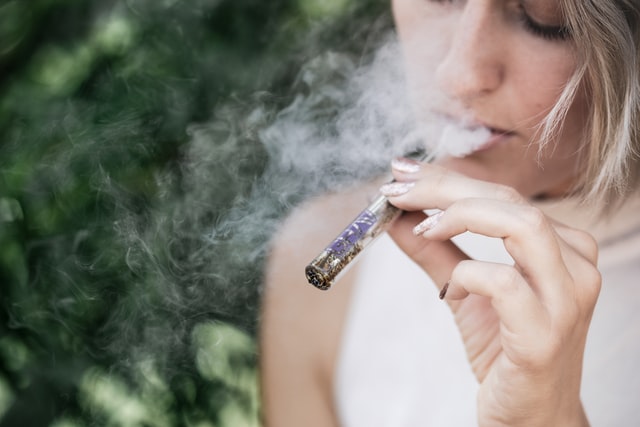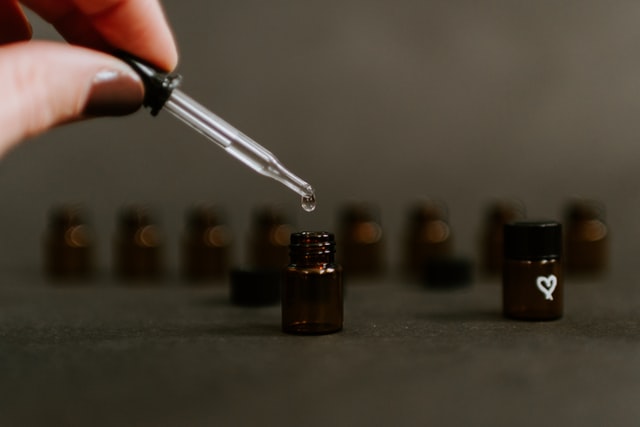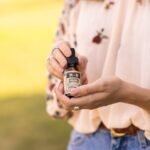Is CBD safe? CBD is now a super popular product thanks to its multiple health benefits. Now you can find a lot of products containing CBD, ranging from CBD tinctures and edibles to beauty products. Even big brands have started using this cannabis compound as an ingredient in many products. But since CBD comes from cannabis, there are still many concerns about its safety. Is it safe? How can I use it and what for? In this article, we will give an answer to those questions.
What Is CBD? Cannabis and Cannabinoids
CBD (short for cannabidiol) is one of the active compounds of cannabis. These active compounds are known as cannabinoids and the most well-known are CBD and THC (tetrahydrocannabinol). THC is actually the cannabinoid that gives cannabis its psychoactive properties, but most cannabinoids are not psychoactive. CBD is one of those non-psychoactive cannabinoids. That is, CBD will not make you high. But even so, the question “Is CBD safe?” still arises.
Not all cannabis plants are the same. In fact, there are three species of cannabis, and each of them has a different set of cannabinoids:
- Indica: This cannabis type usually has higher levels of THC.
- Sativa: This is the most abundant type of cannabis. Because of its high levels of CBD, sativa has become a popular crop and cannabis sativa plants are used to obtain cannabidiol or other hemp products.
- Ruderalis: Much less popular than the indica and sativa species, there is even some discrepancy on whether Cannabis ruderalis is a species of its own or a sub-species of C. sativa.
The CBD that you can buy and is used as an ingredient for many products usually comes from hemp, a type of Cannabis sativa that has very low levels of THC (less than 0.3%, which is the maximum amount that the law allows).
The Endocannabinoid System
All cannabinoids, regardless of their effects, act on the endocannabinoid system in your body. Furthermore, all animals have an endocannabinoid system, which regulates and manages pain, appetite, stress, energy, mood, pain, sleep, memory, and other cognitive functions, woman fertility, thermoregulation, or locomotor activity.
The endocannabinoid system is composed of:
- Endocannabinoids: Natural cannabinoids (or cannabinoids-like molecules) that your own body produces. They get this name because they behave like cannabis compounds.
- Endocannabinoid receptors: Receptors to which endocannabinoids and cannabis’s cannabinoids bind. They can be found throughout your body and the most important ones are the CB1 and CB2 receptors, found mainly in your central and peripheral nervous system.
- Enzymes: These enzymes are responsible for breaking down endocannabinoids and cannabinoids once they have fulfilled their function.
How does CBD Work? CBD Uses and Effects
Cannabidiol binds to the CB1 and CB2 receptors, which results in several responses from your nervous system and your brain that have an effect on all the areas that the endocannabinoid system regulates. That is why CBD seems to offer a wide spectrum of effects and is becoming a trendy product to alleviate the symptoms of many conditions:
- Epilepsy: The use of CBD oil may enhance seizure control in epilepsy patients.
- Parkinson’s Disease: Cannabidiol may reduce tremors and involuntary movements.
- Anxiety and depression: Thanks to its anxiolytic properties, CBD may be a good alternative to relieve anxiety and depression.
- Anorexia: CBD is a natural appetite stimulant. Moreover, its anxiolytic and relaxing effects can also be very helpful.
- Multiple sclerosis and amyotrophic lateral sclerosis: Cannabidiol could ease some of the symptoms of MS and ALS.
- Insomnia: CBD is also a good natural product to fight insomnia.
- Skin conditions: The anti-inflammatory and antibacterial properties of CBD can help you prevent acne breakouts, relieve eczema symptoms, and alleviate psoriasis.
- Menstrual cramps: Cannabidiol may help you relieve menstrual pain as well as the symptoms of premenstrual syndrome (PMS).
- Diabetes: The use of CBD may help you regulate blood sugar levels in type 2 diabetes.
- Chemotherapy side effects: Using CBD can reduce nausea and other side effects of chemo.
- Chronic and acute pain: Cannabidiol’s analgesic and anti-inflammatory effects can help you ease pain, whether chronic (such as arthritis) or acute.
Hence, it is only natural that cannabidiol has become such a popular substance that many brands are using now as an ingredient for many different products. Today you can find CBD oil, vape juice, beauty products, or even CBD-infused sodas.

Is CBD Safe?
If you are wondering: Is CBD safe? The answer is very clear: yes, CBD is safe. It has very few side effects (such as diarrhea, dizziness, or dry mouth) and most cannabidiol users never experience them. And most of all, cannabidiol does not have psychoactive effects, so it is impossible to get high on CBD. However, cannabidiol may interact with medications or drugs. This occurs because the use of cannabidiol can prolong the time certain molecules stay in your body and amplify their effects.
Nonetheless, it is important you establish the CBD dosage you should use, which will depend on several factors, such as:
- What you want to use CBD for
- The content of CBD of the product that you want to use
- They type of CBD product
- Your weight
If you opt for using CBD oil (arguably the most common cannabidiol product), you will find that many bottles indicate the recommendable dosage. However, we recommend you check a CBD dosage calculator to establish the best dosage for you. You can also find many other edible cannabidiol products, such as CBD gummies or CBD chocolates.
But other than “Is CBD safe?”, there is another question that you should bear in mind: drug tests. Even with THC levels as low as 0.3%, CBD products might result in failing a drug test. Therefore, if you need to pass a drug test, we do not recommend you use cannabidiol-based products. But if you still want to consume CBD, using a CBD isolate that does not contain THC may be the best option.



